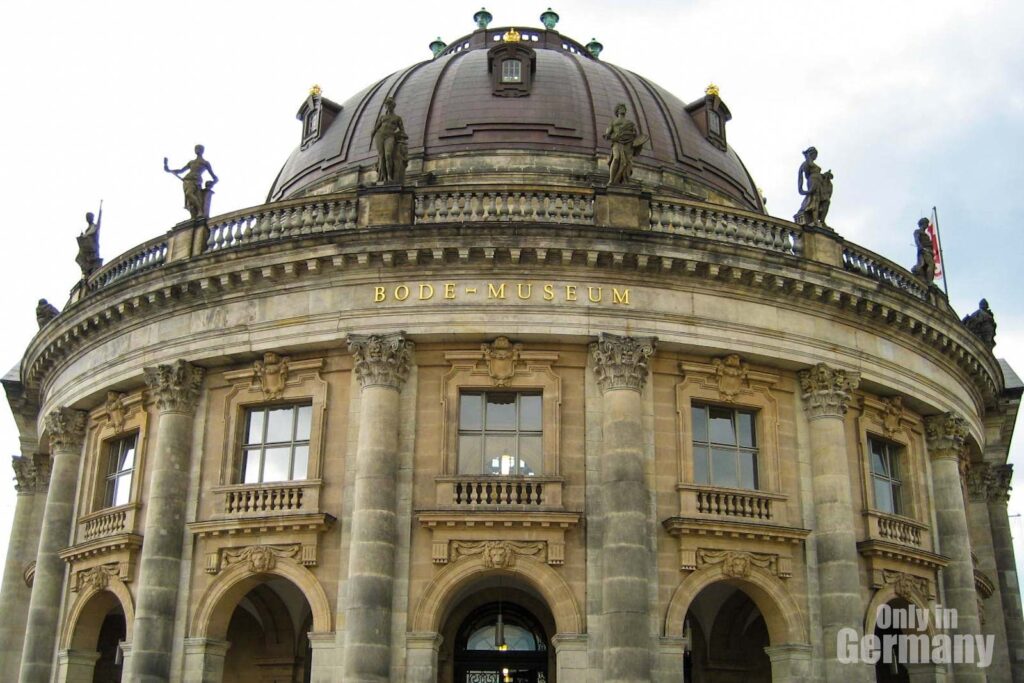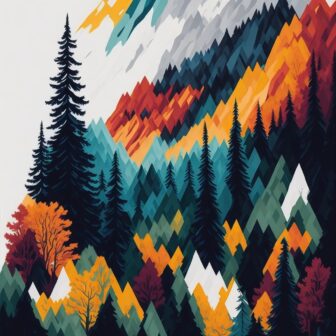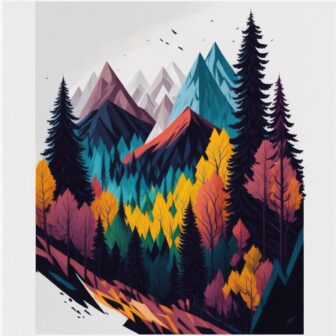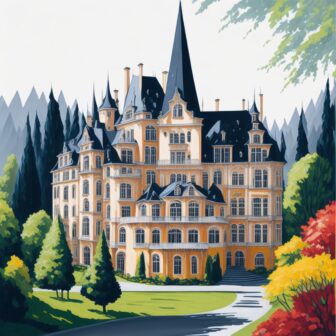Best Time to visit Germany (2023)
From High Season to Low Season find out in this post when it’s the best time for you to visit Germany and see from month to month what Germany has you to offer.
High Season - July and August
- Congested traffic and long waits at popular attractions
- High costs and scarce vacancies in resorts
- Festivals honor everything from wine to sailing and samba to music
Shoulder Season (April –June, September–October)
- Fewer people and cheaper costs, excluding on holidays
- Spring brings blooming flowers
- Autumn brings brilliant foliage
- Sunny, comfortable conditions are perfect for outdoor activities
Low Season (Nov–Mar)
- Fewer hours and seasonal closures at popular attractions, but no lineups
- Theatre, concert, and opera season is in full swing
- January and February are the busiest months for ski resorts

January
The Germans essentially have the entire nation to themselves this month, with the exception of the ski resorts. This is a fantastic time to visit cathedrals and museums because the days are short and chilly.
Call of the Mountains
At resorts that range from glam, like Garmisch-Partenkirchen, to family-friendly resort in the Bavarian Forest, grab your skis or board and hit the slopes. There is a track for everyone, whether you’re a black diamond daredevil or a Sesame Street newbie.
February
Even though it’s not as hot as Rio, the German Carnival is nevertheless a valid reason to celebrate. Make arrangements before you leave home because ski resorts are crowded because of the school holidays.
Film Festival in Berlin
At the Berlinale, one of Europe’s most prominent film festivals, stars, starlets, directors, and critics sashay down the red carpet for two weeks of screenings and glamorous parties.
Carnival/Fasching
Parades, humorous performances, and costumed street parties mark the beginning of Lent. The main celebrations take place in Düsseldorf, Cologne, and Mainz along the Rhine, while Munich and the Black Forest also have their own customs.
March
The first signs of spring are in the air as the days start to become longer. meals made with Bärlauch (wild garlic) and fresh herring are featured on menus, especially in coastal districts.
April
This month, the Easter Bunny can’t be avoided. The first harvest of white asparagus, in particular, marks the beginning of spring. It’s a huge hit in Germany.
Walpurgisnacht
Harz villages come alive on April 30 for the paganic Witches’ Sabbath celebration as children and adults alike dress as witches and warlocks and dance and sing through the streets.
On April 30, residents of Maifest Village stage a festive celebration complete with traditional costumes, singing, dancing, and the cutting down of a tree for a Maibaum (Maypole).
May
One of the most romantic months, frequently pleasantly warm and sunny, and ideal for welcoming beer-garden season. Numerous official holidays, which Germans stretch into long weekends, cause congested highways and a lack of accommodations.
Carnival of the Cultures
A colorful parade of flamboyantly attired dancers, DJs, artists, and musicians perform as hundreds of thousands of revelers celebrate Berlin’s multicultural tapestry with parties and unusual food.
Working Day
Germany observes a public holiday on May 1 and some cities stage political protests in support of labor rights.
Wave-Gotik-Treffen
For one of the greatest Goth gatherings in the world, thousands of Goths descend upon Leipzig over the lengthy Whitsuntide/Pentecost weekend.
June
Gourmets can rejoice in the abundance of fresh, local goods in the markets as Germany’s festival pace picks up. In the summer, when the sun doesn’t set until around 9.30 p.m., life takes place outside.
Vatertag
Celebrated on Ascension Day, Father’s Day is also referred to as Männertag (Men’s Day), giving men a reason to binge drink with the wife’s approval.
Keler Week
With hundreds of regattas, ship parades, historic vessels, and constant partying, Kiel hosts the largest boat party in the world every year, drawing more than three million salty types to the Baltic Sea.
Christopher Street Day
Regardless of your sexual orientation, attend the major gay pride events in Berlin, Cologne, and Hamburg to paint the town pink.
July
Summer break from school ushers in the busiest travel season. Regardless of whether you’re going to the seaside or the highlands, make reservations in advance.
Festival de Samba
Up to 200,000 people travel to Coburg for this song and dance festival, which features 3000 performers from a dozen different countries and about 100 bands.
Festival of Music in Schleswig-Holstein
This festival is held in the northernmost state of Germany in castles, churches, warehouses, and barns, and features performances by renowned international musicians as well as promising new artists. It lasts from mid-July until the end of August.
August
Although August is usually the hottest month, afternoon thunderstorms can bring some relief from the heat. Fresh berries and Pfifferlinge (chanterelle mushrooms) are in season right now.
Shooting Competitions
At marksmen’s festivals, more than a million Germans (mainly men) demonstrate their shooting prowess. Hanover is home to the largest and Düsseldorf to the oldest.
Wine Festivals
The wine festival season, which features tastings, folkloric parades, fireworks, and the selection of wine queens, begins when the grapes develop to a luscious sweetness. One of the largest and most renowned is the Dürkheimer Wurstmarkt.
Kinderzeche
This 10-day event is held in Dinkelsbühl along the Romantic Road and features young actors portraying historical figures, a pageant, and general fun.
September
Frequently a fantastic month for weather – not too hot, but plenty of sunshine. Although the peak travel period has passed, September is still very busy because of numerous wine and autumn events. Toward the end of the month, trees may start to explode with color.
Run in Berlin
In Berlin, join the 50,000 other runners in Germany’s largest street race, which has seen nine world records set since 1977, and compete with them or simply support them.
RELATED:
Best Boutiques Hotels in Berlin
October
As the days grow shorter, colder, and wetter, everyone is undoubtedly returning to work or school. The peak trade-fair season affects hotel rates and supply in Frankfurt, Berlin, Hamburg, and other large cities. Visitor centers, museums, and attractions operate on a limited schedule.
Frankfurter Buchmesse
With 7300 exhibitors from more than 100 countries, Frankfurt hosts the biggest book market in the world.
November
The majority of life occurs indoors. On the plus side, there are many theater, concert, opera, and other cultural events to choose from, and lines at tourist attractions are minimal. Bring rain gear and warm clothing.
St. Martinstag
With a lantern parade and a recreation of the well-known event in which St. Martin rips his coat in two to share with a beggar, this festival, held on November 10–11, honors the 4th-century saint noted for his humility and generosity. Then there is a substantial roasted goose feast.
December
The four weeks of celebrations leading up to Christmas, known as Advent, are enhanced by illuminated streets, markets, calendars, wreaths, and home-baked cookies. Typically, the first coating of snow falls on ski resorts.
Related:
German Christmas Traditions: What to Do in Germany for Christmas
Nikolaustag
German kids leave their shoes outside the door the night before Christmas in the hopes that St. Nick will fill them with candy and tiny presents. Children who misbehave might only find the prickly rod that Knecht Ruprecht, St. Nick’s servant, left behind.
Christmas Markets
The majority of German Christmas markets are held from late November to 24 December, and they typically offer mulled wine, spicy gingerbread cookies, shimmering ornaments, and many other charming elements. The Christkindlesmarkt in Nuremberg is particularly well-known.
Silvester
The name “Silvester” for New Year’s Eve honors the fourth-century pope who made Christianity the state religion of Rome. Thousands of amateur pyromaniacs light off pyrotechnics to welcome the new year.






